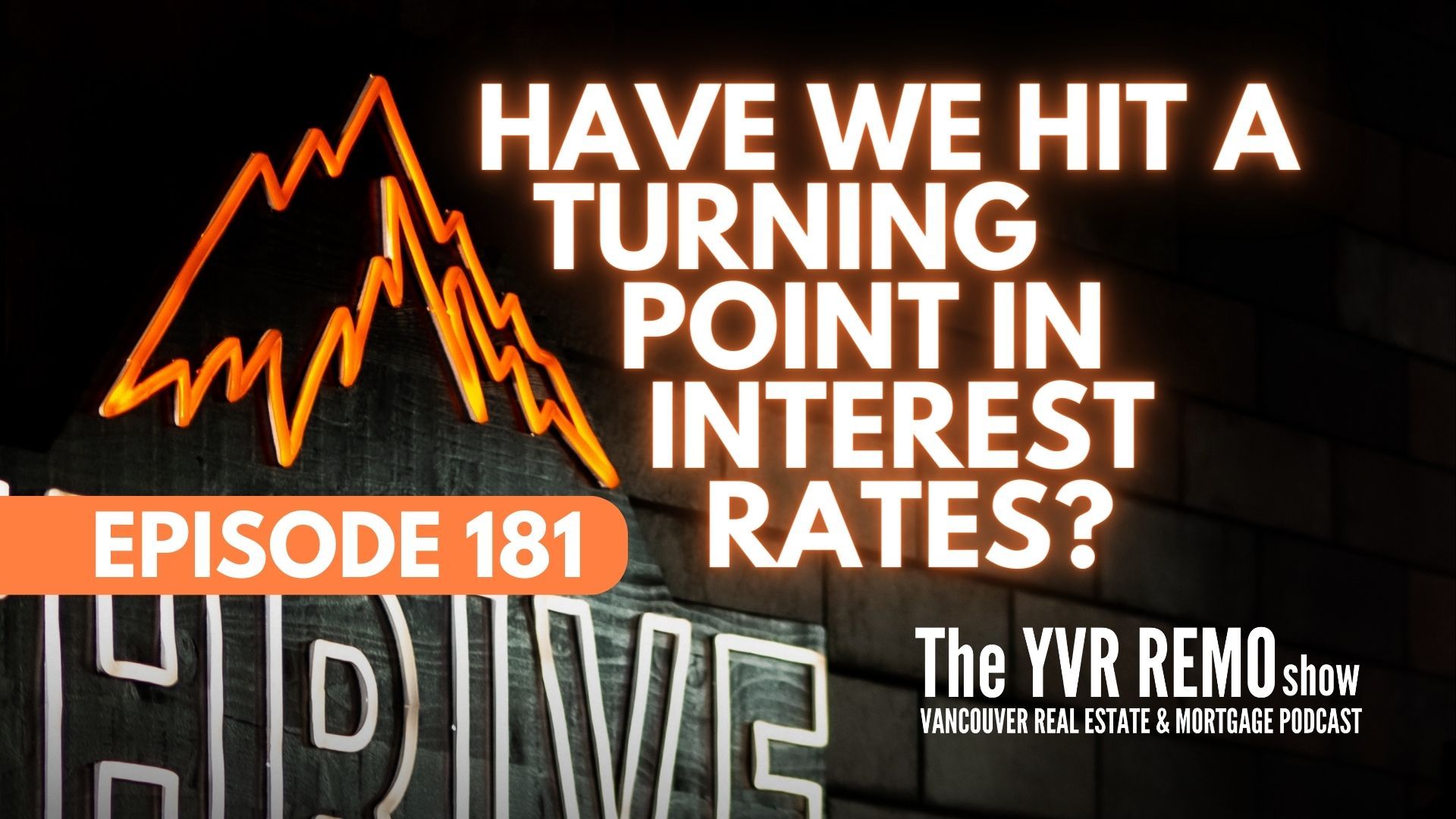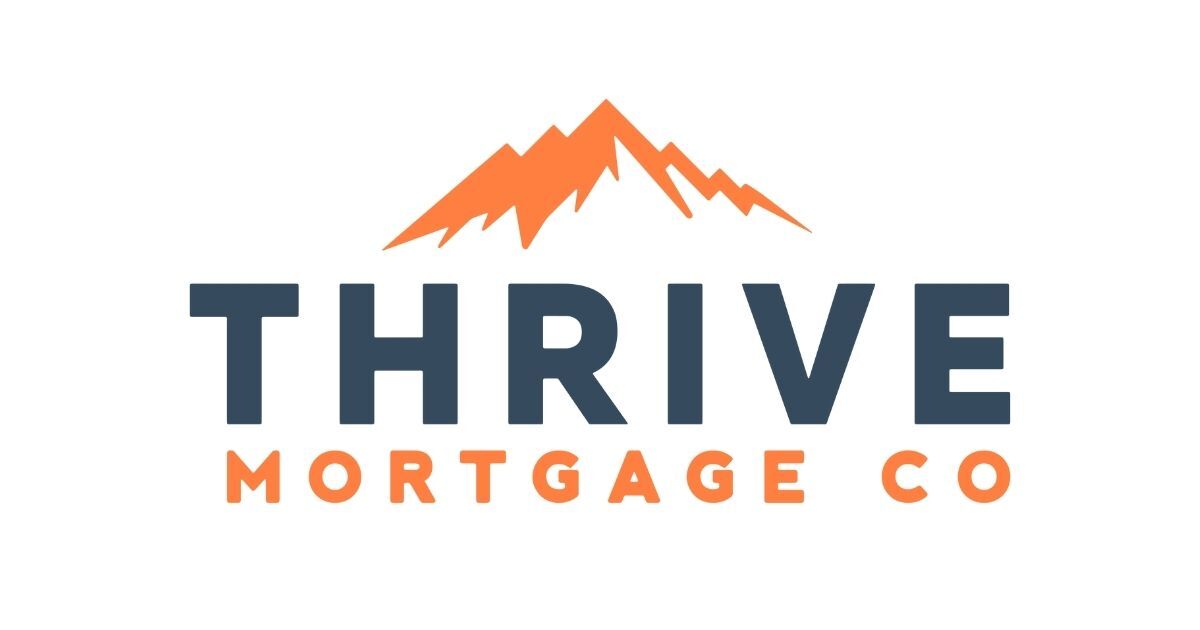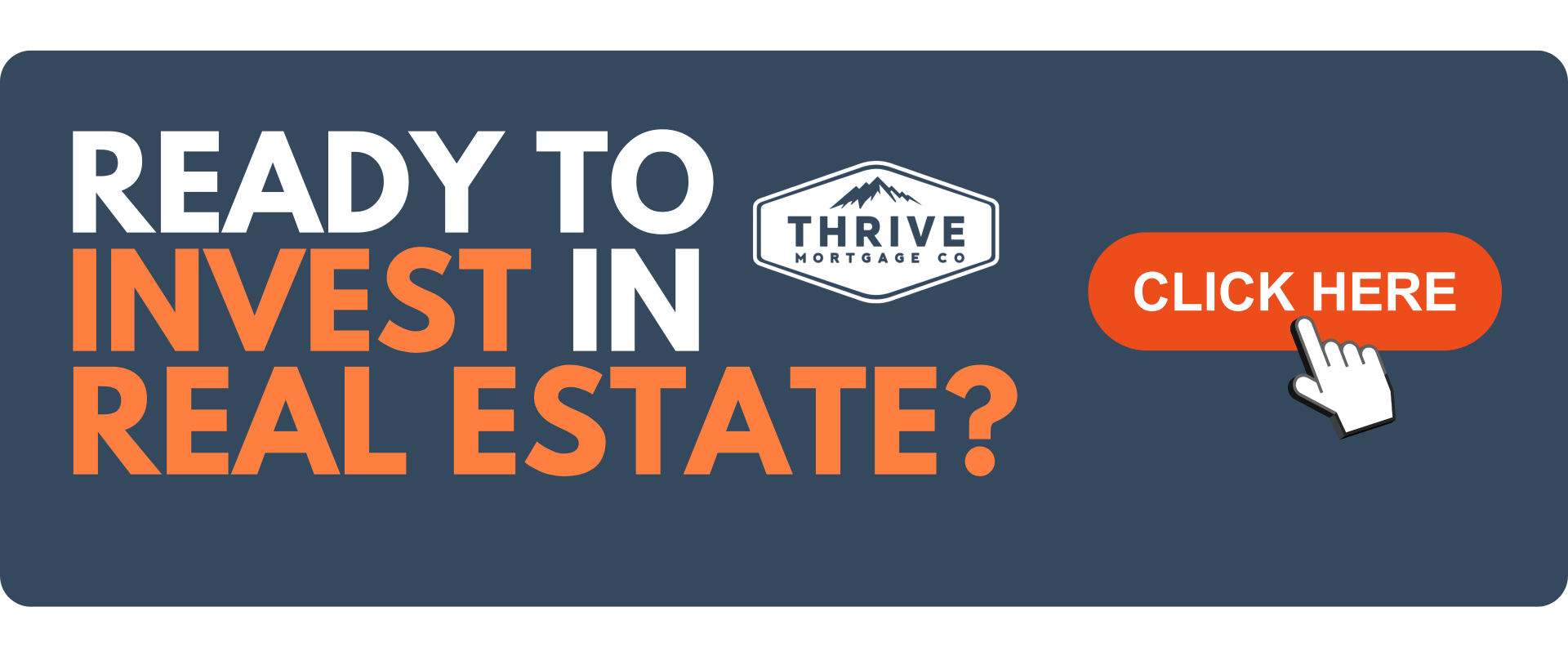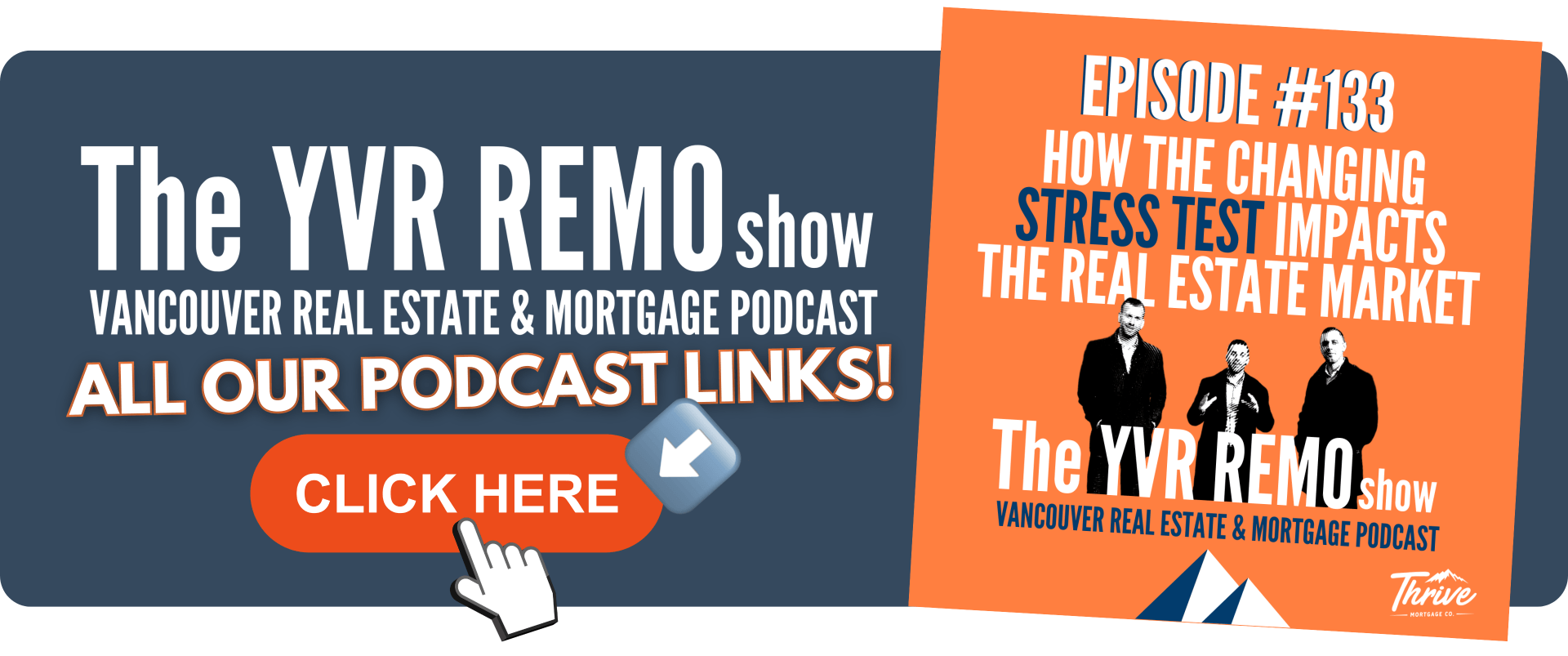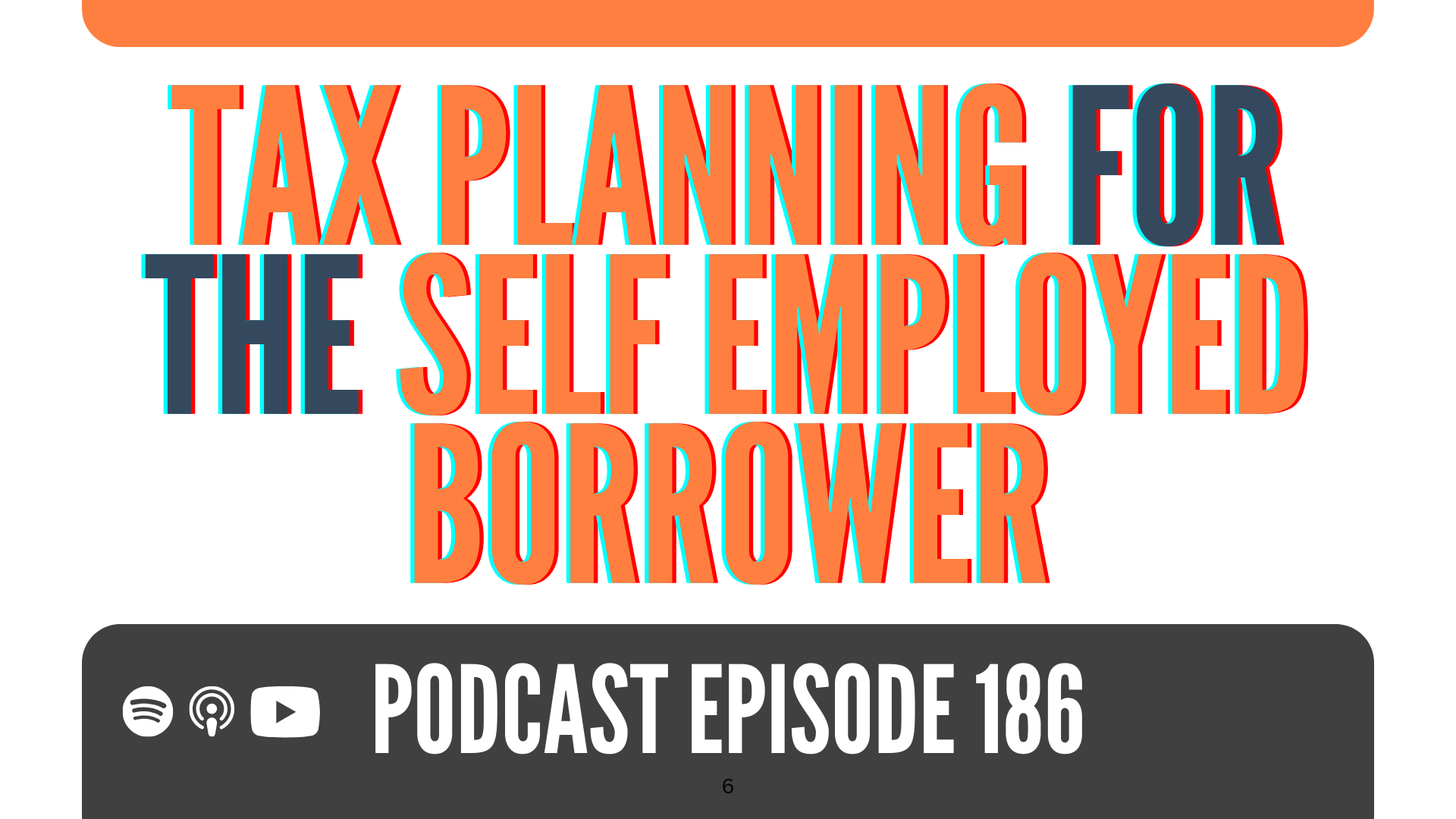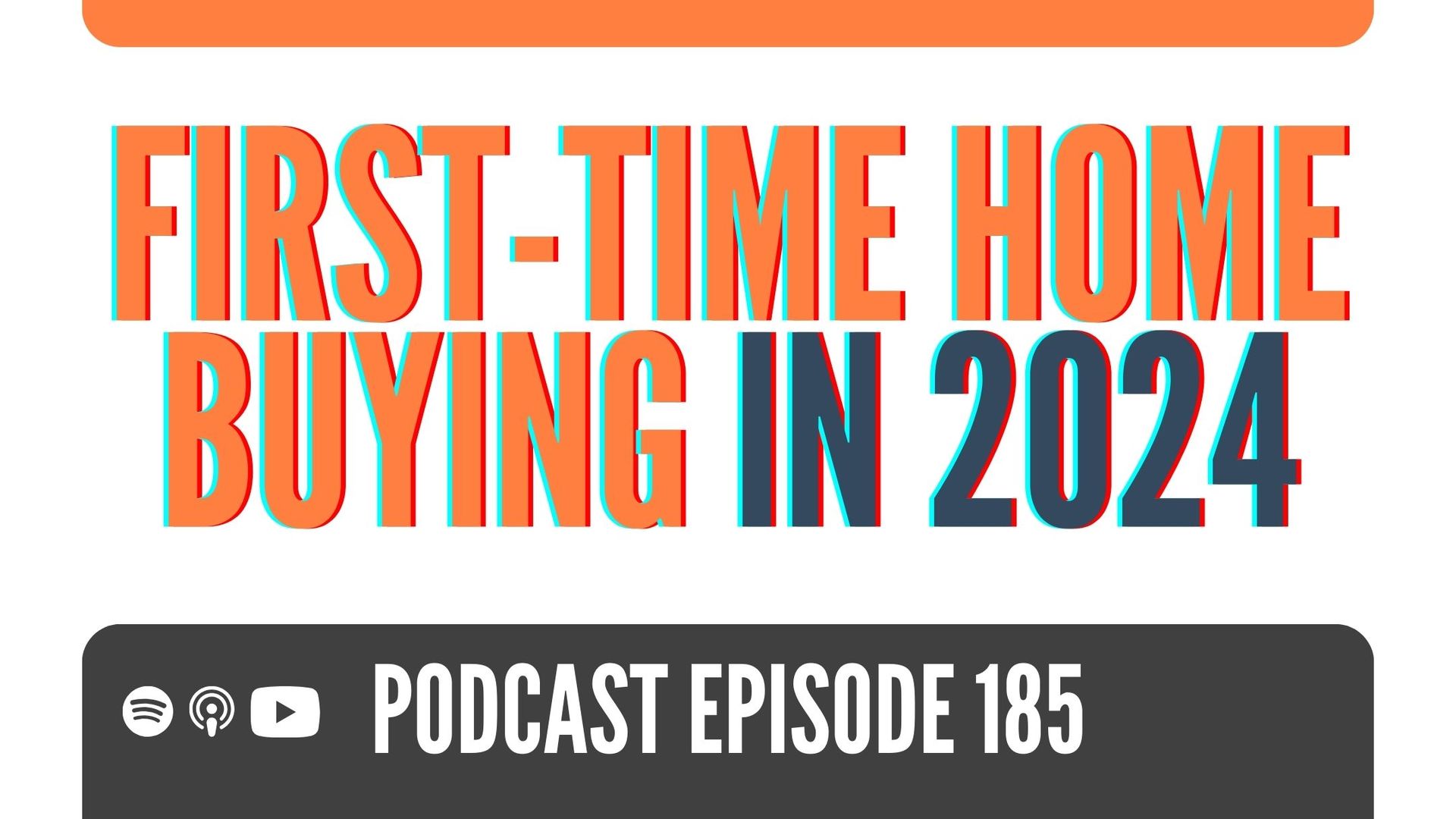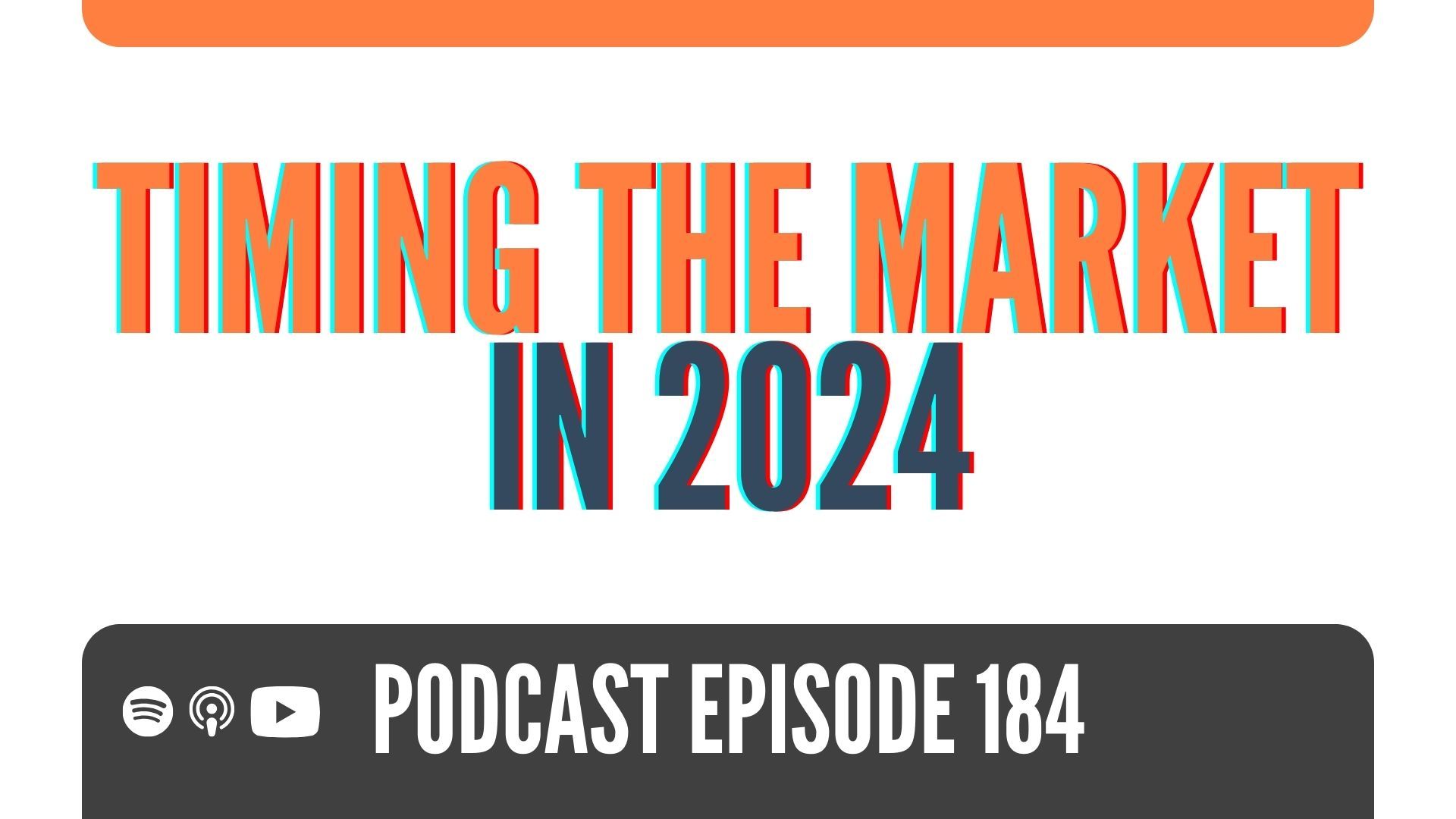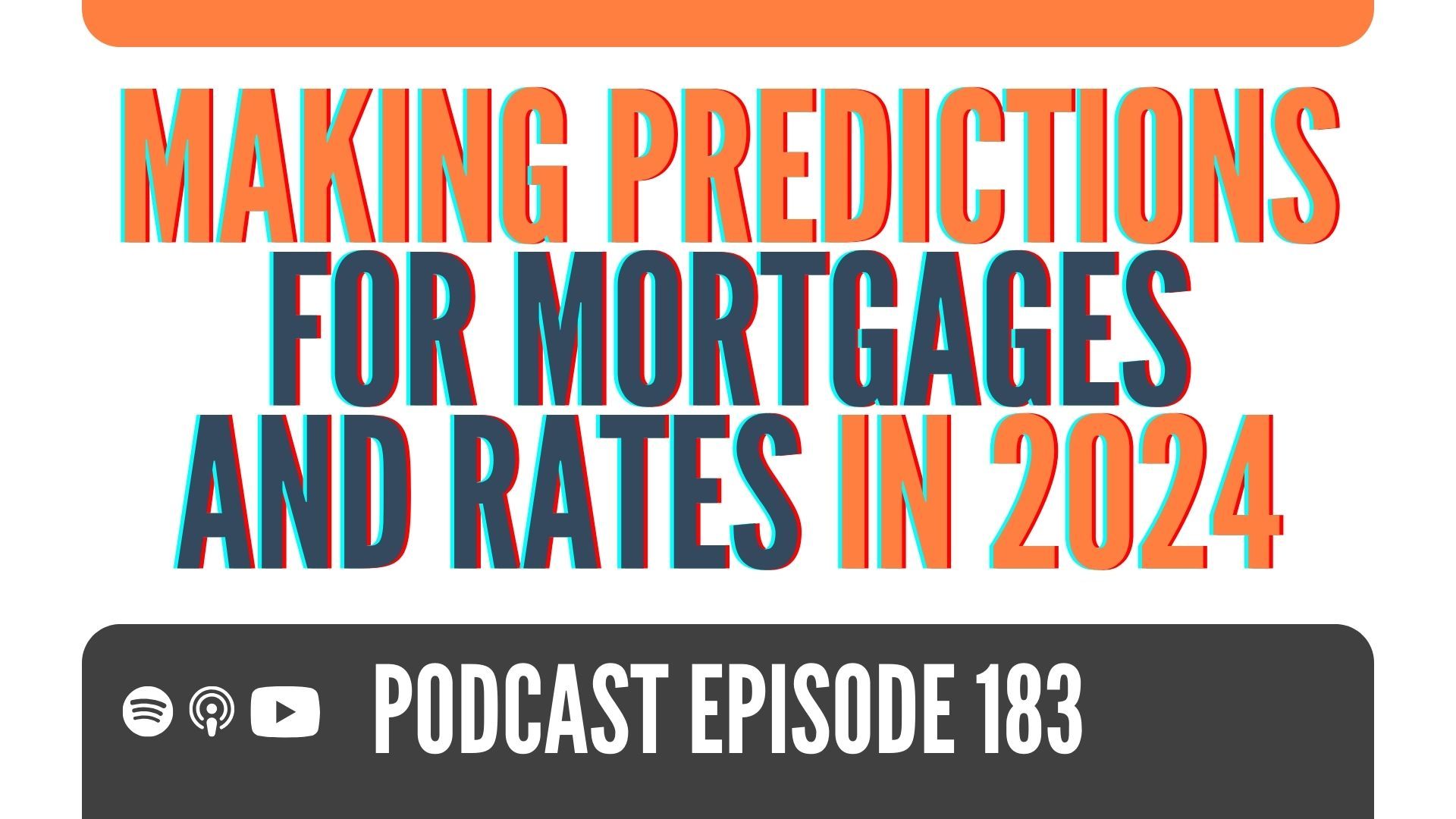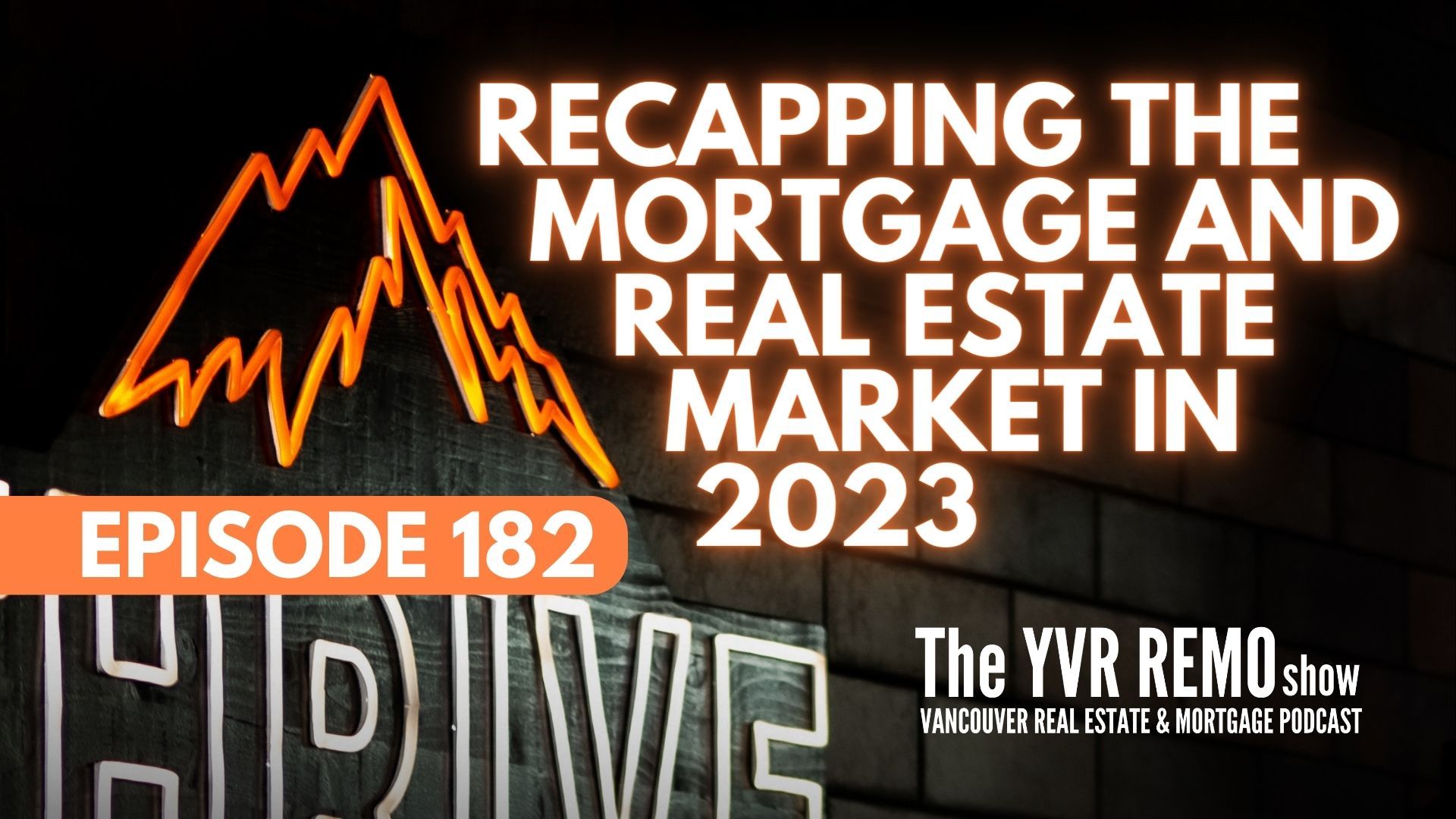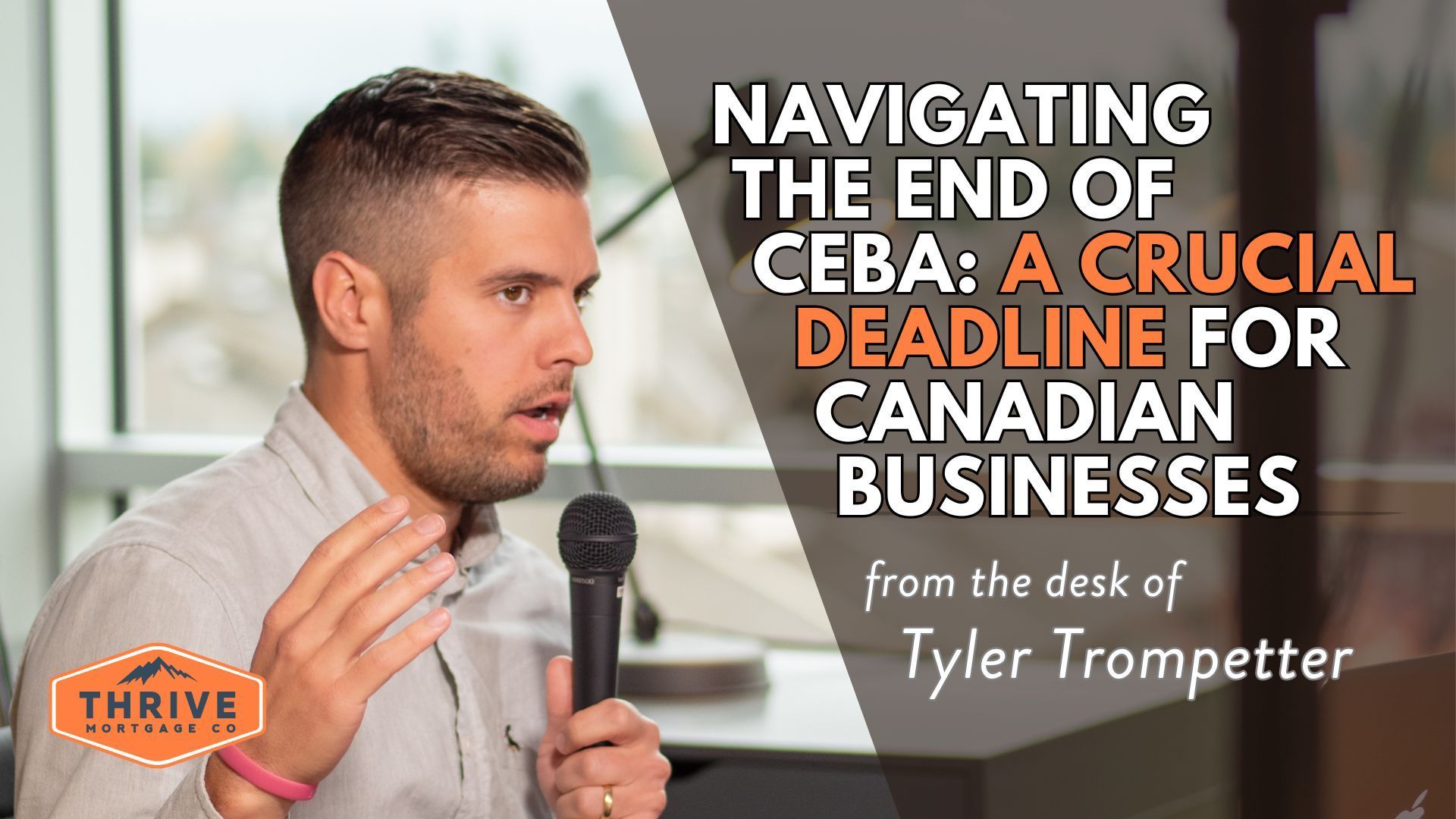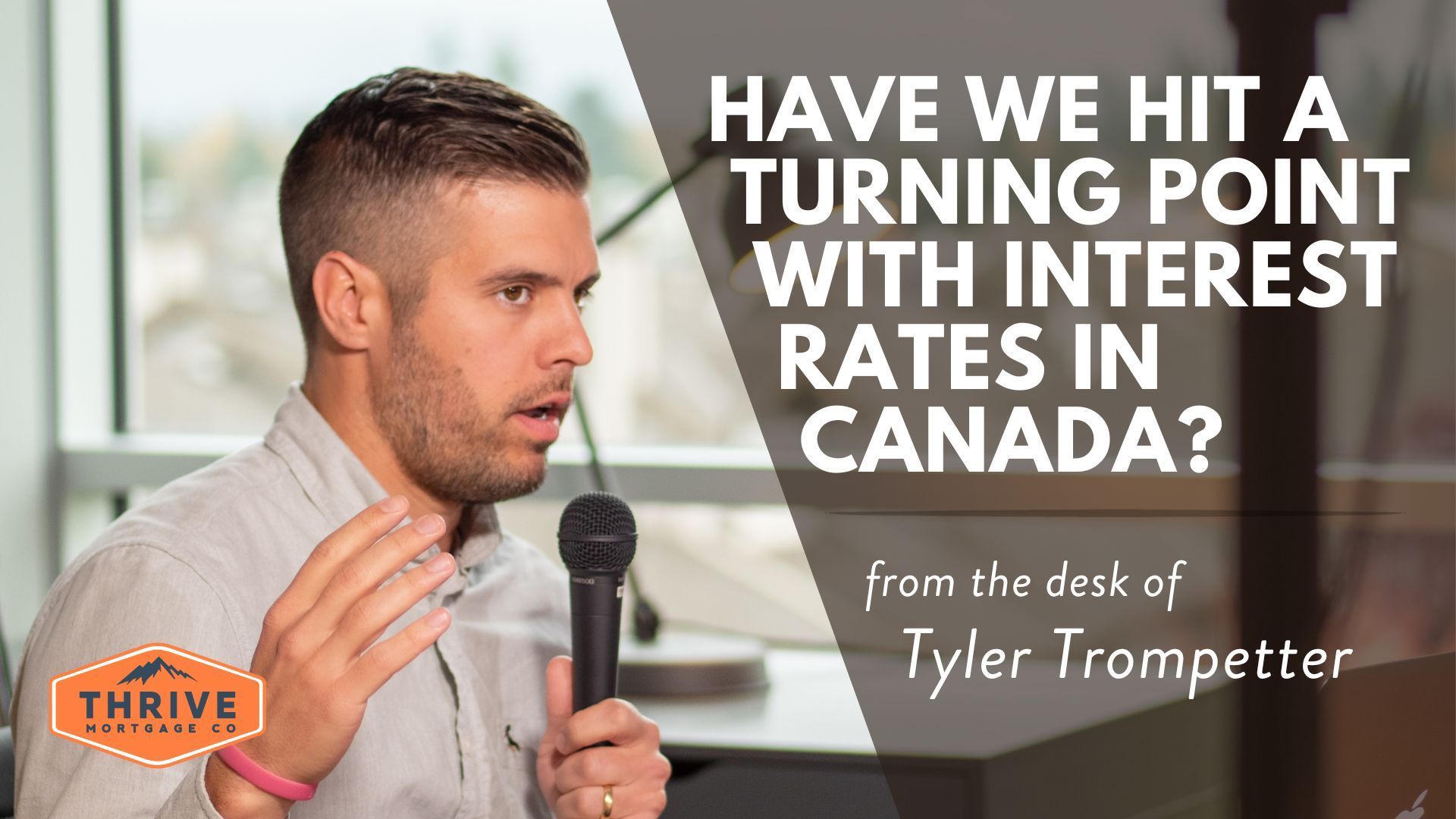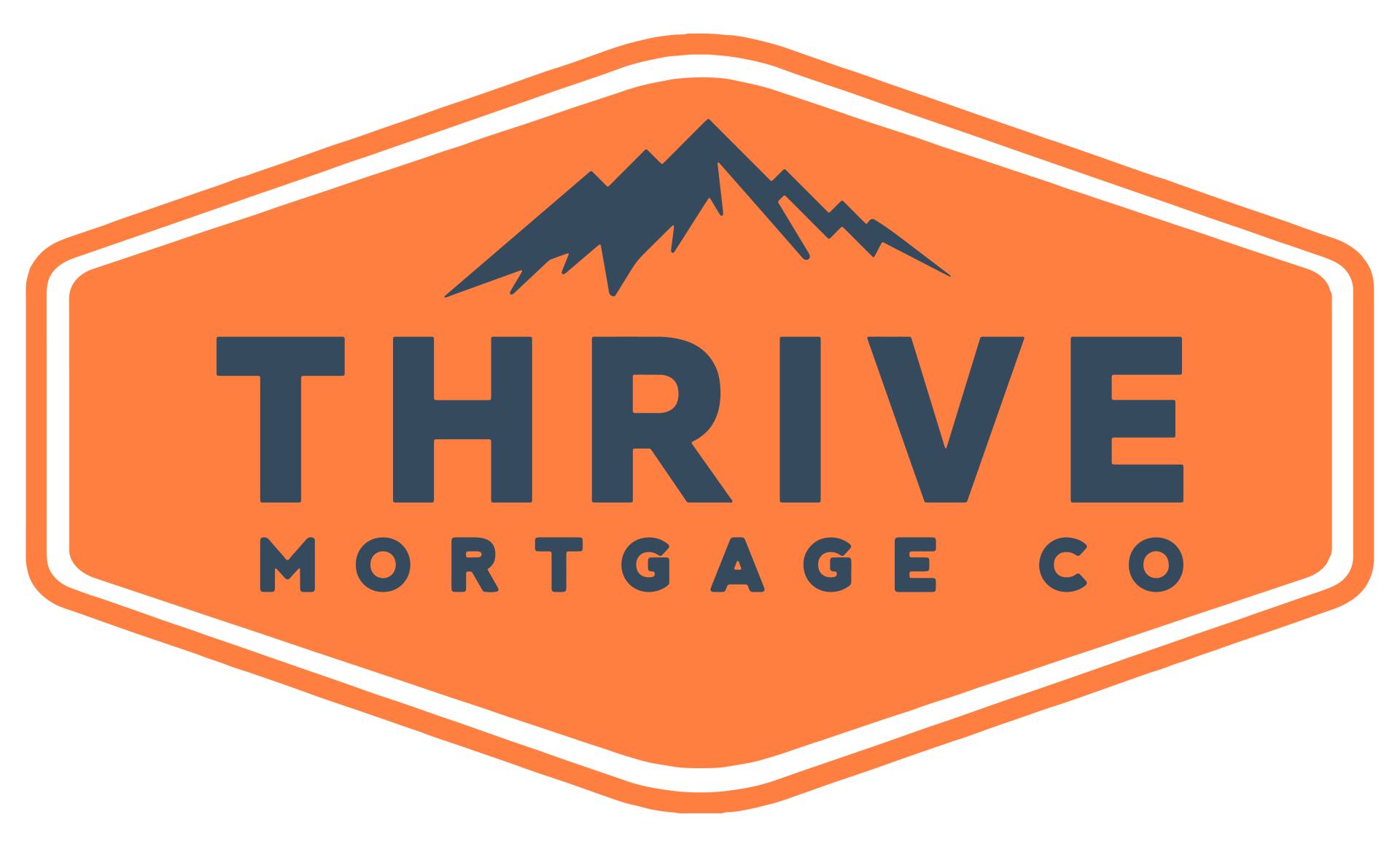How The Changing STRESS TEST Impacts The Real Estate Market | The YVR REMO Show Episode 133
Most buyers that are buying in the current market have heard of the stress test.
We find that a lot of people aren't sure what that means.
The stress test has changed a number of times in the last few years.
There are some general principles that you can understand and we'll go over that as well as a history of what the stress test is.
WHAT IS THE STRESS TEST?
The stress test is a means for the government to reduce the risk that you could qualify for a mortgage if interest rates were to increase. We've seen interest rates increase by over 2%. With the stress test, you must qualify to make the payments on your mortgage at 2% higher than the rate that you qualified for when you got approved for your loan.
The stress test becomes more important in times of rising rates because its changing people's qualifications.
HOW ARE WE EXPLAINING THE STRESS TEST?
Everyone that we work with has a good understanding because we take the time to explain it. It's important to explain that because there are a lot of people that we talked to that don't qualify for the mortgage amount that they want, expect, or feel they could afford.
When rates go back down, the qualification will get easier because the stress test is going to come down with interest rates.
Rates have increased at a rapid level quicker than anyone expected. There are a lot of people that were sitting at 1.5% and they built their life around that. The fact that we had to qualify them at the time at 5% or 5.25%, means that they are should be room to fall back. These people should be able to afford their mortgages right now. If we didn't do that and we were qualifying people at 1.5% and their rate is now 4.5%, those people would be hurting.
We think the stress test was a great play. It's worked out in a lot of borrowers' favour in regards to affordability and making sure that they can handle what we're dealing with right now.
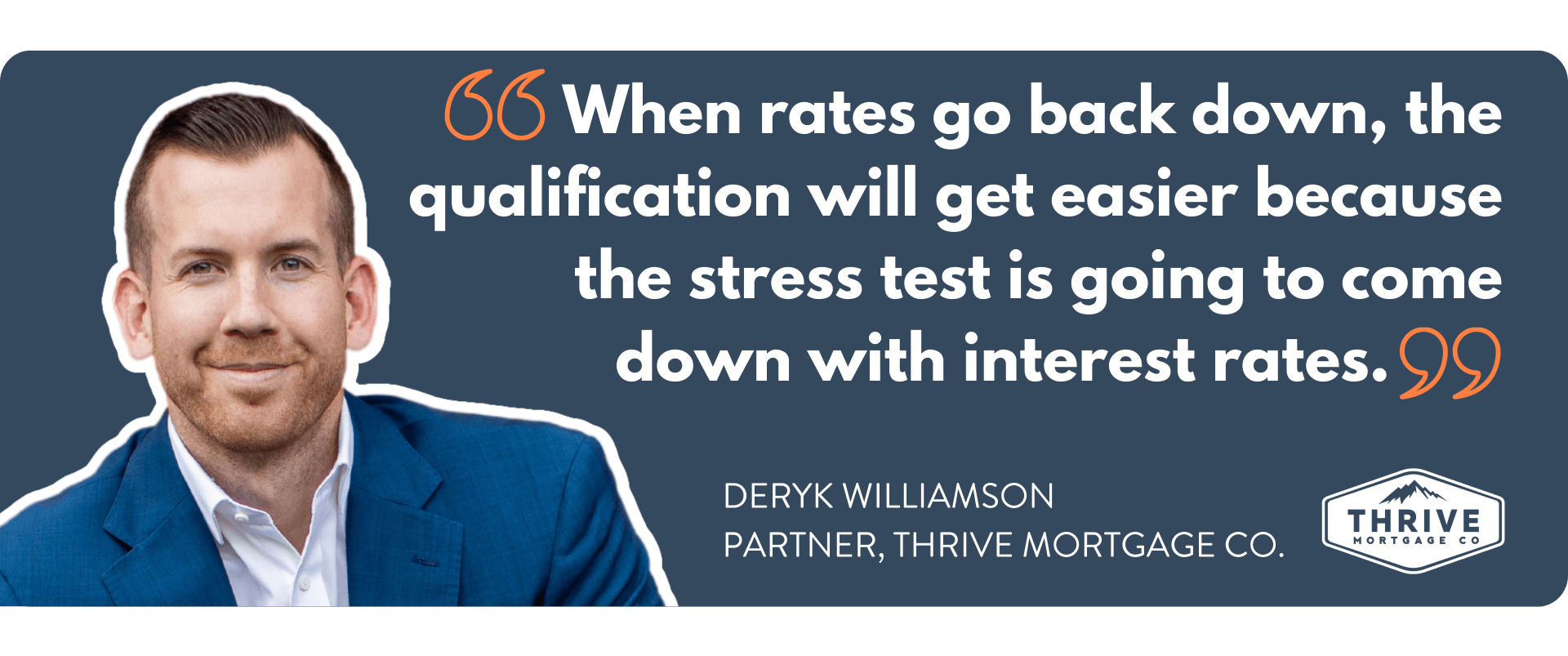
A QUICK HISTORY OF THE STRESS TEST ⬇️
The stress test changed a few times. It originally came out in 2016 for every insured borrower who's buying a home with less than 20% down. They had to qualify at a minimum rate that was set by the Bank of Canada. Annually, they would review this rate and now or they could review it anytime they chose to. Right before 2016, you could take a five-year fixed mortgage and you could qualify for the rate you were getting. We had borrowers that were qualifying at 2.44% and all of a sudden they had to qualify at 4.44%. There was about a 20% reduction in mortgage qualification.
In 2018, we had the government step in and said everybody who's getting a mortgage now has to qualify under that stress test. Everybody was trying to lock in their rate, lock in their payment, try to qualify, refinance, or buy a second home.
We saw a dip in the industry.
We saw a run-up where everybody was trying to be competitive and purchase. That was followed by a dip for six to 12 months. We had kind of a flatter market, there was a slight incline, and then a flatter market the following year. There is no doubt putting that stress test in place did have an impact on the real estate market, not permanently but for some time until people adapted which is always what happens.
Fast forward to where we're at right now. The government has not only made adjustments to the stress test and how it operates but it's also reneged on a couple of things. Before COVID happened, there was a suggestion that they were going to change how the stress test worked. It was going to use the median rates set by the banks and 2% above. We haven't seen that come together. What they have done, however, is they just adjusted the minimum stress test rate.
IF INTEREST RATES HAVE INCREASED...
DO WE HAVE TO QUALIFY AT A HIGHER PRICE POINT?
Every situation is different. People right now are seeing higher qualification if you go variable. Some people maybe weren't into the variable product, but the variable product is getting them to the purchase price or refinance amount that they want to make it work. There's a little bit of strategy involved in that regard, we've actually had some clients that have chosen to go variable to achieve the mortgage amount that they needed to get. After the fact, you always have the ability to convert into a fixed if and when it makes sense.
The higher the interest rate that you're paying, the lower you're going to qualify for because we're adding 2% on top of your contract rate for the stress test. Right now, your typical variable for conventional mortgages is 4.30%, and your average fixed rate depending on length of term is 5.20% or 5.30%. That's going to drop qualifications somewhere in the range of probably eight to 10%. It makes a difference.
CHALLENGES IN THE CURRENT MARKET
When you're in a rising rate environment and we're qualifying based on the lowest variable interest rate, that is a variable interest rate. If the Bank of Canada changes its prime rate, even though you have a locked in discount on a variable rate, your overall interest rate adjusts.
The Bank of Canada overrules the stress test. If the Bank of Canada raises rates by 1%, then your final interest rate is 1% higher and then you have to qualify again at 2% above that. That can be one of the challenges for people looking to buy in these markets. Our biggest suggestion is to know a couple of rules of thumb and be in contact with your mortgage team.
Be proactive.
One rule of thumb would be, if interest rates were to increase by a half percent, you're looking at about a 4% to 5% reduction in how much mortgage money you can borrow. If you qualify for a million-dollar loan at half a percent in increase, the rate you're looking at qualifying for is about $40,000 or $50,000 less. If rates go up by 4%, you can double that and expect a reduction from that standpoint.
Those are some good numbers to use as rules of thumb.
THINGS TO CONSIDER WITH A RATE HOLD 💡
We're doing a variable rate hold, you're just holding the discount, there's nothing you can do to stop a variable rate from changing. The flip side of that is the fixed rate. If you are doing a rate hold on a fixed product for 120 days, which is typically standard, you get that rate as long as you bought and closed within that timeframe. Your qualification doesn't change. There are a lot of people, especially in this market, who are not jumping out there and buying a house the next week. People are taking their time and getting a feel for the market. They're waiting because everyone else has a little bit of fear, which is going to continue to go down. If your rate hold is coming up and you haven't found a house, we have to do a new rate hold. If rates have increased, you are going to see a lower qualification.
That's something you have to consider when you're pre-approved.
You need to find the right property and everything needs to make sense. If you can buy within that threshold, and your rate holds coming up for renewal, you could qualify for more if rates have come down.
HAVE AN EXISTING LOAN?
HOW DOES THIS IMPACT YOU?
If you're simply renewing your existing loan, making no changes, you can just leave it as is. You don't need to re-qualify for a stress test. If you're looking to take out new money or refinance, you now have to qualify for that stress test.
If you've been paying off your mortgage for the last five years, there's no doubt that your property has increased in value. It provides you with a longer amortization period. As long as you qualify, you might be able to reset that loan to extend it back to 30 years. You could choose to still pay it off over 20 to 25 years with the right product.
That's important to note. ⬆️
READY TO INVEST IN REAL ESTATE?
We want to deconstruct the myth that real estate investing is only for "real estate professionals" and help anyone harness its power—no matter where you're at in your wealth-building journey.
Click below to take advantage of our new Real Estate Investing Fast Track course. ⬇️
CAN THE STRESS TEST BE AVOIDED?
For the most part, no.
If you are taking on an insured mortgage, there's no way to get around a stress test. If you qualify with the 1% lender out there that has a very unique program, it's not a bank. It's a credit union because of their regulator. There are are some one off programs where you can potentially avoid the stress test. These programs are not for everybody. It's not for your typical buyer or person refinancing to pay off debt. These are programs where they can bypass that because of strengthening an application, meaning assets. They want to make sure that if they're trying to help someone achieve a larger mortgage than they technically should get, there's a reason for it. There's a fallback. They're not worried about that person not being able to afford the payments, because there's reasonability to the situation. There are currently a couple of one off programs where you can bypass the stress test for a very, very strong application.
This is not a situation where you avoid the stress test but there are exceptions that we have granted, often with specific lenders. One of them specifically, is amazing for this. If you tick all the boxes, have perfect credit, you've got a stable income, and you have a good sized down payment, we have lenders that will bypass debt service ratios. Typically, the maximum debt service ratio is 44%. We can use 44% of household income to cover housing costs and any outside debts. We have conventional lenders that can go up to 50% for a strong file. That is bypassing the stress test regarding qualification.
This is where it's really important to work with a broker that understands what different lenders are doing. There are probably 90% of lenders in Canada that would never even get close to that. That's not technically bypassing the stress test. From a qualification level, it's definitely getting you close or above.
🌎 England had a stress test and they got rid of it. Their stress test was based on interest rates climbing by 3%. They suggest their stress test was not working as well as they thought. It's stopping people from getting in the door.
SHOULD CANADA CONSIDER ELIMINATING THE STRESS TEST OR MAKING EXCEPTIONS FOR FIRST-TIME BUYERS?
We believe there should be exceptions.
The stress test should not be a blanket stress test.
There are situations like we just talked about with credit unions and a strong file. For first-time buyers, that could make a lot of sense. Someone in an industry where their income is constantly increasing, RCMP just as one example.
There are too many what-ifs and exceptions. There's too much work behind the scenes to make it work. Exemptions should be situational because sometimes it does not make sense.
The biggest challenge at the end of the day is getting a down payment and qualifying over 25 years. A better suggestion for first-time buyers or people entering the market would be to consider a 30-year amortization. It keeps your payments flexible.
WANT MORE PODCAST LINKS? 🎙⬇️
Most people are nervous or afraid of the stress test. It's just a calculation, nothing more than that. If you're not sure what you qualify for, we do have some tools and calculators on our website.
You can find the Mortgage Calculator at the top of this page!
We can have a conversation with you to get a general idea as to where you're at and set you off on the right track. If you don't reach out you'll never know!
We're on Instagram!
instagram.com/thrivemortgageco
Check us out on Facebook!
How to Reach US! 📲
Call 604.398.5575 or Email us!
More Questions or READY to get started!?
Just Ask US > Click Here to set up a call or EMAIL us
